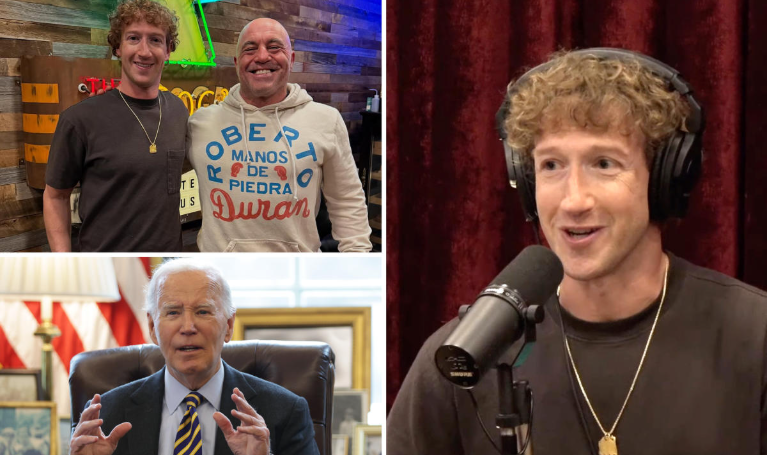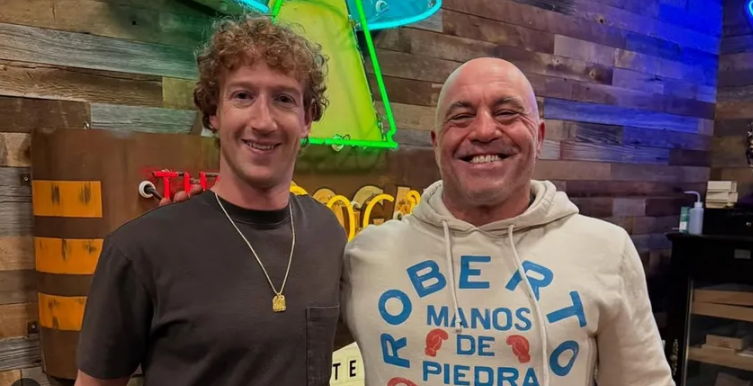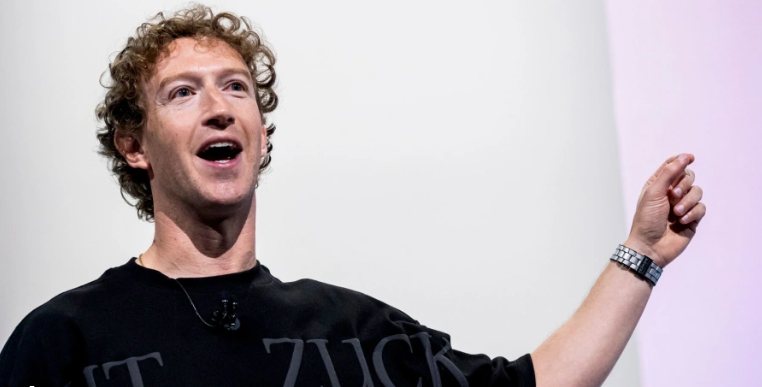
Meta CEO founder Mark Zuckerberg told podcaster Joe Rogan that members of President Biden’s administration yelled at his employees, demanding they take down content on their behalf.
Meta announced Tuesday that it would be ending its controversial fact-checking practices and lifting restrictions on speech to “restore free expression” across Facebook, Instagram and Meta platforms, admitting its current content moderation practices have “gone too far.” Zuckerberg spoke about the platform’s struggles to maintain freedom of expression while fending off pressure from the Biden administration amid the COVID-19 pandemic.
“During the Biden administration, when they were trying to roll out the vaccine program,” the social media CEO said, “while they were trying to push that program they also tried to censor anyone who is basically arguing against it. And they pushed us super hard to take down things that were honestly, were true. They basically pushed us and said, you know, that ‘anything saying that says vaccines might have side effects, you basically need to take down.’ And I was just like ‘We’re not going to do that, we’re clearly not going to do that, I mean that is kind of inarguably true.”
INTERNET ROASTS NYT HEADLINE ABOUT FACT-CHECKERS RULING META CRITICISM F FACT CHECKS ‘FALSE:’ ‘BEYOND PARODY’

In a recent interview with Joe Rogan, Mark Zuckerberg revealed some shocking details about the pressure he faced from the Biden administration to censor content on Facebook. The tech giant, known for its influence on public discourse, found itself in the crosshairs of government officials demanding strict control over what users can see on the platform. The revelations made by Zuckerberg shed light on the delicate balance between free speech and political influence in the digital age.
The Pressure from the Biden Administration
According to Zuckerberg, high-ranking officials in the Biden administration would often contact him directly to express their displeasure with certain content on Facebook. They would reportedly “scream” and “curse” at his employees, demanding swift action to remove posts they deemed problematic. This unprecedented level of interference raised concerns about government overreach and the potential threat to free speech online.

The Dilemma of Censorship
While acknowledging the need to combat misinformation and hate speech, Zuckerberg expressed his reservations about giving in to political pressure to censor content on the platform. He emphasized the importance of allowing diverse voices to be heard, even those with which he may personally disagree. The delicate balance between protecting users from harmful content and preserving the right to express differing opinions poses a significant challenge for tech companies like Facebook.
The Role of Tech Giants in Society
The revelations made by Zuckerberg highlight the immense power wielded by tech giants in shaping public discourse and influencing political outcomes. As gatekeepers of information, companies like Facebook have a responsibility to uphold democratic values while navigating complex relationships with governments around the world. The delicate dance between corporate interests, government pressure, and user rights underscores the need for transparency and accountability in the digital age.

The Impact on User Trust
The controversy surrounding Facebook’s interactions with the Biden administration has raised concerns about the platform’s commitment to user privacy and free expression. As one of the most widely used social media networks, Facebook plays a pivotal role in connecting people and sharing information. Any hint of political interference or censorship can erode trust among users and undermine the platform’s credibility as a neutral space for public discourse.
Moving Forward
In light of these revelations, it is essential for tech companies to establish clear guidelines for addressing government requests for content takedown. Transparency, accountability, and respect for user rights should be at the forefront of decision-making processes. By promoting open dialogue and respectful disagreement, platforms like Facebook can foster a more inclusive and robust online community.

Conclusion
The recent revelations made by Mark Zuckerberg in his interview with Joe Rogan shed light on the complex interplay between technology, politics, and free speech. As tech giants continue to wield substantial influence over public discourse, it is crucial for them to navigate government pressure with integrity and a commitment to upholding democratic values. By promoting transparency and respecting user rights, companies like Facebook can find a delicate balance between censorship and free expression in the digital age.
